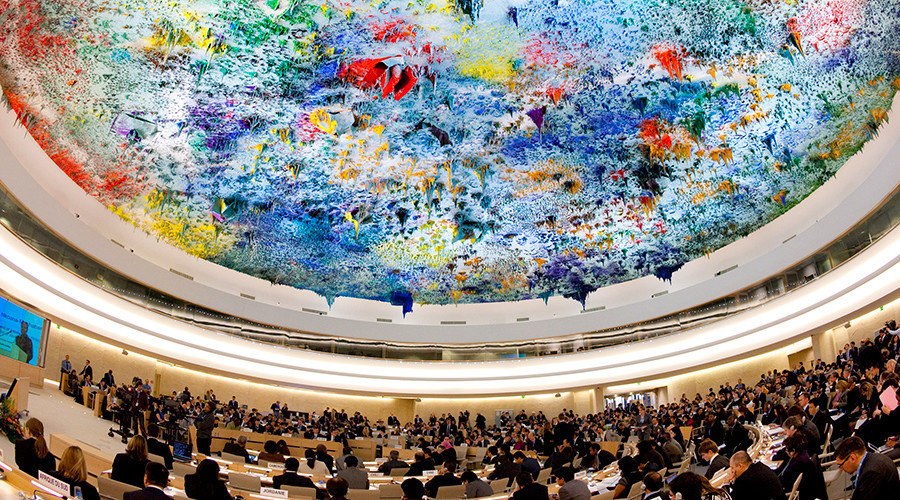Resolutionen for "Bekæmp glorificeringen af nazismen, neo-nazisme og andre dyrkelser som bidrager til at stimulere moderne former for racisme, racediskriminering, xenofobi og relaterede intoleracse," som er blevet forelagt årligt af Rusland siden 2006, blev godkendt af FNs menneskerettighedskomite med 131 medlemmer stemmende for, 3 imod, og 48, for det meste europæiske lande, undladende at stemme.
Washington og Kiev har været resolute modstandere af resolutionen over årene, som er symbolsk og uden nogen retslig magt.
"Vi fordømmer uden forbehold alle former for religiøs og etnisk intolerance eller had hjemme og omkring i verden," sagde den amerikanske vicerepræsentant Stefanie Amadeo. "Men, på grund af denne resolutions snævre mål og politicerede natur, og fordi den kalder for uakceptable begrænsninger på den fundamentale ytringsfrihed, så kan USA ikke støtte den."
"Denne resolutions anbefalinger til at begrænse ytringsfriheden, foreningsfriheden og retten til på fredfyldt vis at samles, er imod de principper som er nedfældet i den universelle menneskerettighedserklæring og skal blive modsat."
Kommentar: Denne artikel er blot delvis oversat til dansk af Sott.net fra: No surprise: US and Ukraine vote against anti-Nazi glorification resolution
In past years both states have also accused Moscow of using alleged Nazism to condemn post-Soviet countries, shut down historical debate about the events of World War II, and even to potentially justify foreign invasions.
The Russian Foreign Ministry said it was "disappointed" by the lack of unanimity in support of the resolution, and "unconvinced" by the free speech explanation.
"The destructive stance of the US and Ukraine on this resolution, unfortunately, came as no surprise," State Duma International Affairs Committee member Sergei Zheleznyak told the media in Moscow in the aftermath of the vote. "Kiev made radical nationalism its state ideology glorifying the participants in the punitive operations responsible for the deaths of thousands of citizens of Ukraine, Russia, Poland and other countries during WWII... "continues to support the criminal regime in Kiev and invent accusations against Russia."
The ranks of supporters and opponents of the resolution is a mirror image of the Ukraine-sponsored document passed two days earlier by the same committee, which accused Russia of occupying Crimea and human rights abuses. Following its adoption, Russia accused Ukraine of "politicizing human rights."
Both resolutions will be presented to the UN General Assembly next month.




Læserkommentarer
dig vores Nyhedsbrev